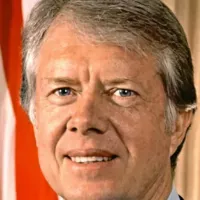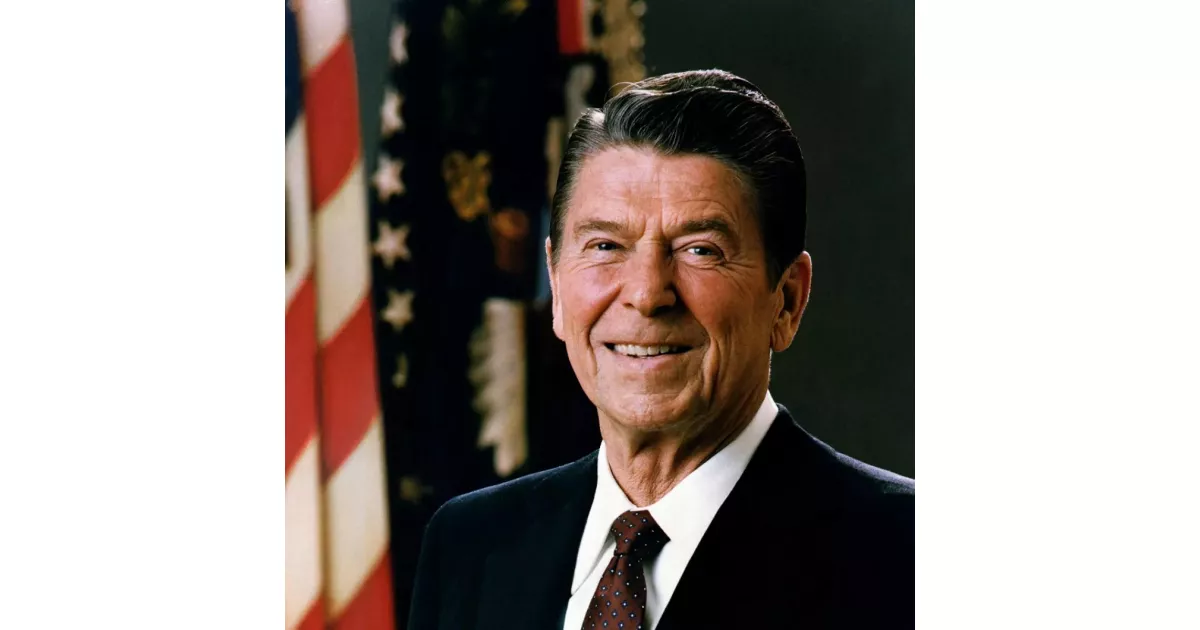A detailed timeline of the impact and legacy of Ronald Reagan across different fields.
Ronald Reagan, the 40th U.S. President (1981-1989), was a pivotal figure in the American conservative movement. A Republican, he implemented supply-side economics, dubbed "Reaganomics," which aimed to reduce government spending and taxes to stimulate economic growth. Reagan strengthened the military, challenged the Soviet Union, and is credited by some with helping to end the Cold War. Domestically, he faced challenges like the AIDS epidemic and the Iran-Contra affair. Before his presidency, he was a Hollywood actor and Governor of California.
1981: Appointment of Sandra Day O'Connor
In 1981, Reagan appointed Sandra Day O'Connor as Associate Justice to the Supreme Court, fulfilling a campaign promise to name the first female justice to the Court.
1985: Fall in oil prices impacts Soviet economy
In 1985, the prices of oil, the primary source of Soviet export revenues, fell to one third of the previous level, contributing to a stagnant economy during Mikhail Gorbachev's leadership.
1985: State of the Union Address: Support for freedom fighters
In his 1985 State of the Union Address, Reagan proclaimed support for freedom fighters as self-defense, solidifying the Reagan Doctrine of supporting anti-communist movements against Soviet-backed groups worldwide.
1986: Appointments of Antonin Scalia and William Rehnquist
In 1986, Reagan appointed Antonin Scalia as Associate Justice and elevated William Rehnquist from Associate Justice to Chief Justice of the Supreme Court.
1988: Appointment of Anthony Kennedy
In 1988, Reagan appointed Anthony Kennedy as Associate Justice to the Supreme Court.
1988: Republican presidential candidates invoke Reagan's policies
Since 1988, Republican presidential candidates have invoked Ronald Reagan's policies and beliefs.
November 1989: Fall of the Berlin Wall
In November 1989, the Berlin Wall fell, which was retroactively recast as a soaring achievement following Reagan's demand to Gorbachev to tear it down in 1987.
1989: Reagan speaks out about gun control
In 1989, Ronald Reagan made his first public appearance after leaving office and shortly after the Stockton schoolyard shooting, he stated his views on gun control.
1989: Reagan supports repealing presidential term limits
In 1989, Ronald Reagan supported repealing the Twenty-second Amendment's presidential term limits.
1990: Gallup survey on Reagan's presidency
In 1990, a year after he left office, a Gallup survey found that 54 percent of Americans said they approved of the overall job Reagan did as president.
1990: Budget Enforcement Act of 1990
Jeffrey Frankel opined that the deficits were a major reason why Reagan's successor, Bush, reneged on his campaign promise by raising taxes through the Budget Enforcement Act of 1990.
March 1991: Reagan writes "Why I'm for the Brady Bill"
In March 1991, Ronald Reagan wrote an op-ed in the New York Times, titled "Why I'm for the Brady Bill".
1991: Ronald Reagan Presidential Library Opens
In 1991, the Ronald Reagan Presidential Library opened.
1991: Dissolution of the Soviet Union
In 1991, the Soviet Union was dissolved. This marked the end of the Cold War.
1992: Approval of Reagan administration declines
In 1992 the number of Americans who approved of the Reagan administration declined to 48 percent.
1992: Reagan addresses the Republican National Convention
In 1992, Ronald Reagan addressed the Republican National Convention and favored a constitutional amendment requiring a balanced budget.
May 1994: Reagan, Ford, and Carter support the Federal Assault Weapons Ban
In May 1994, Ronald Reagan, Gerald Ford, and Jimmy Carter sent a letter to House members, urging them to support the controversial Federal Assault Weapons Ban.
2006: Favorability of Reagan's presidency reaches 71% approval
In 2006, favorability of Ronald Reagan's presidency reached its highest ever: 71 percent approval.
2008: Scholarly consensus on Reagan's legacy
In 2008, British historian M. J. Heale summarized that scholars had reached a broad consensus on Reagan's legacy.
2010: Favorability of Reagan's presidency reaches 74% approval
In 2010, favorability of Ronald Reagan's presidency reached 74 percent approval.
2018: Favorability of Reagan's presidency reaches 72% approval
In 2018, favorability of Ronald Reagan's presidency reached 72 percent approval.
2023: Favorability of Reagan's presidency reaches 69% approval
In 2023, favorability of Ronald Reagan's presidency reached 69 percent approval.
Mentioned in this timeline

Martin Luther King Jr was a pivotal leader in the...
California is a U S state on the Pacific Coast...

The stock market is where buyers and sellers trade stocks...
The Union of Soviet Socialist Republics USSR existed from to...

Washington D C is the capital city and federal district...

Jimmy Carter the th U S President - was a...
Trending

8 minutes ago Official Pokémon LEGO Sets Launch Worldwide on Pokémon Day 2026!

8 minutes ago Scream 7 Premiere Sees Protests After Melissa Barrera's Firing; Cast Reunites.

8 minutes ago Stock market plunges after PPI inflation data; Dow, S&P 500, Nasdaq decline.
8 minutes ago US advises embassy staff to leave Israel amid Iran strike threats, urging speed.

9 minutes ago IndyCar Season Opens in St. Petersburg: O'Ward and Palou in Focus.

9 minutes ago Norah O'Donnell Back on CBS Mornings, Highlights Women in 'We the Women'
Popular

Jesse Jackson is an American civil rights activist politician and...

Barack Obama the th U S President - was the...

Susan Rice is an American diplomat and public official prominent...

XXXTentacion born Jahseh Dwayne Ricardo Onfroy was a controversial yet...

Michael Joseph Jackson the King of Pop was a highly...

Kashyap Pramod Patel is an American lawyer who became the...
